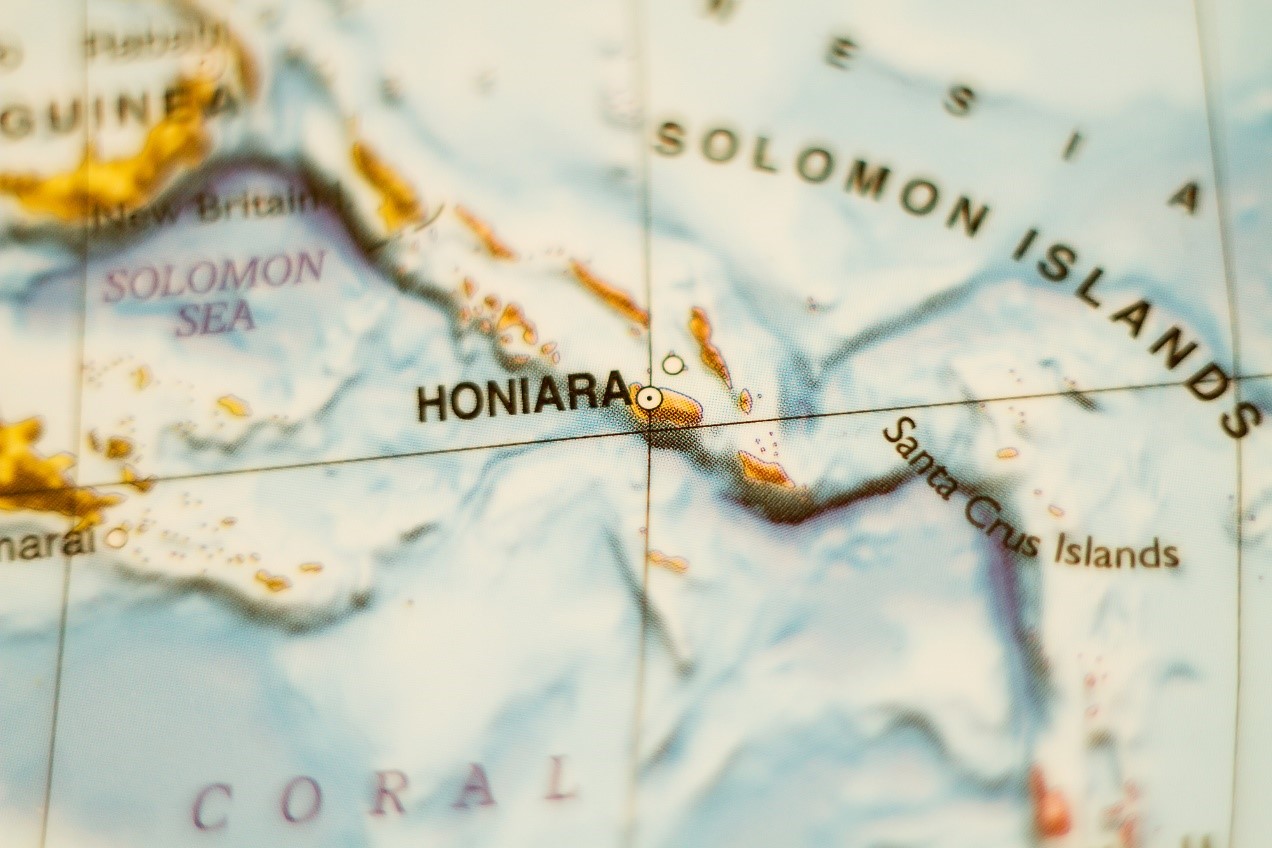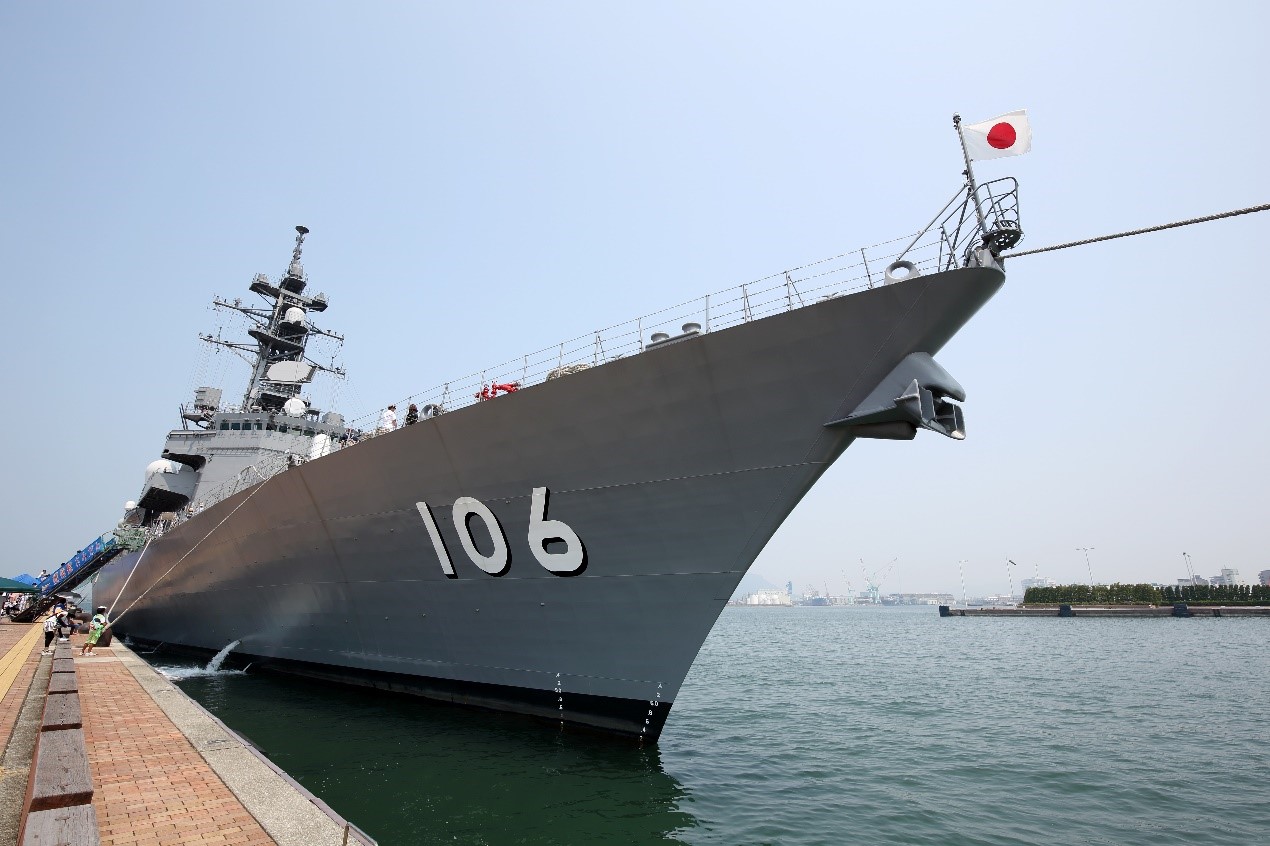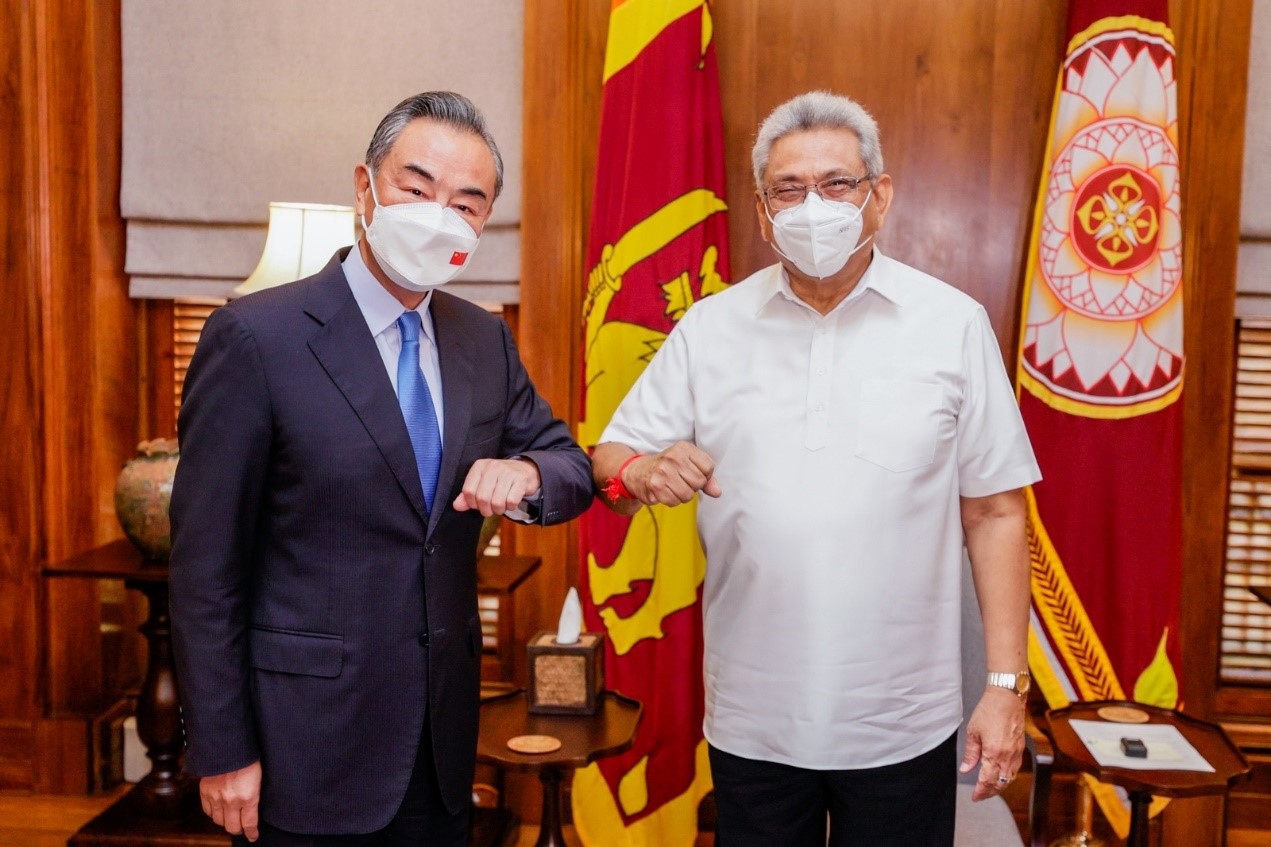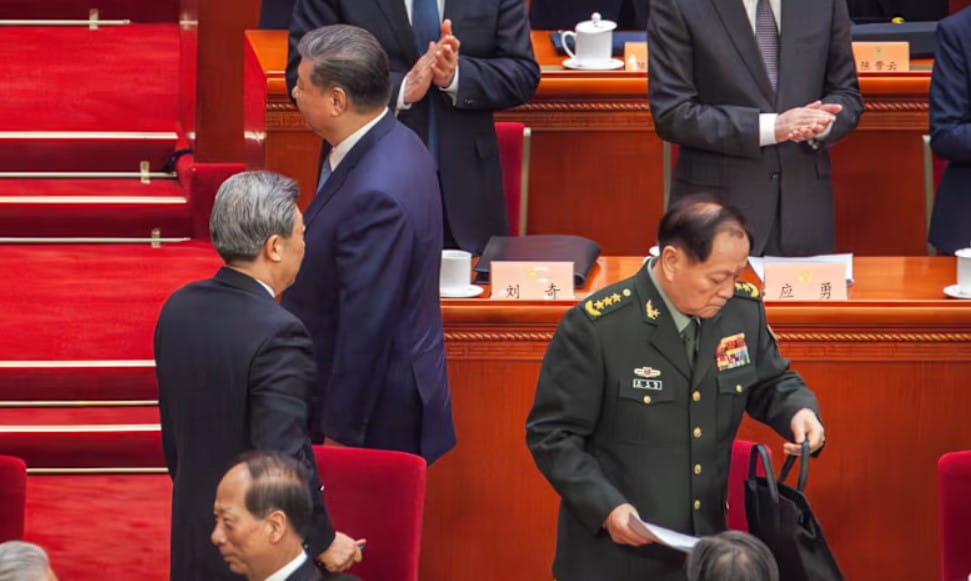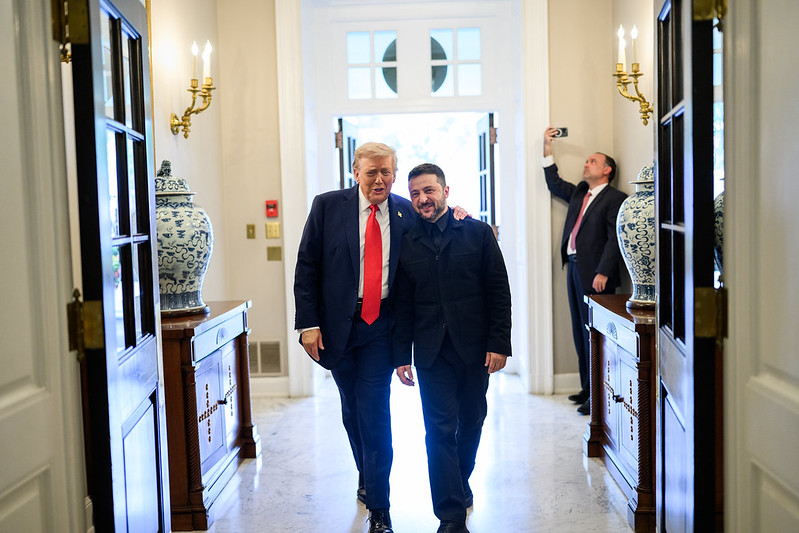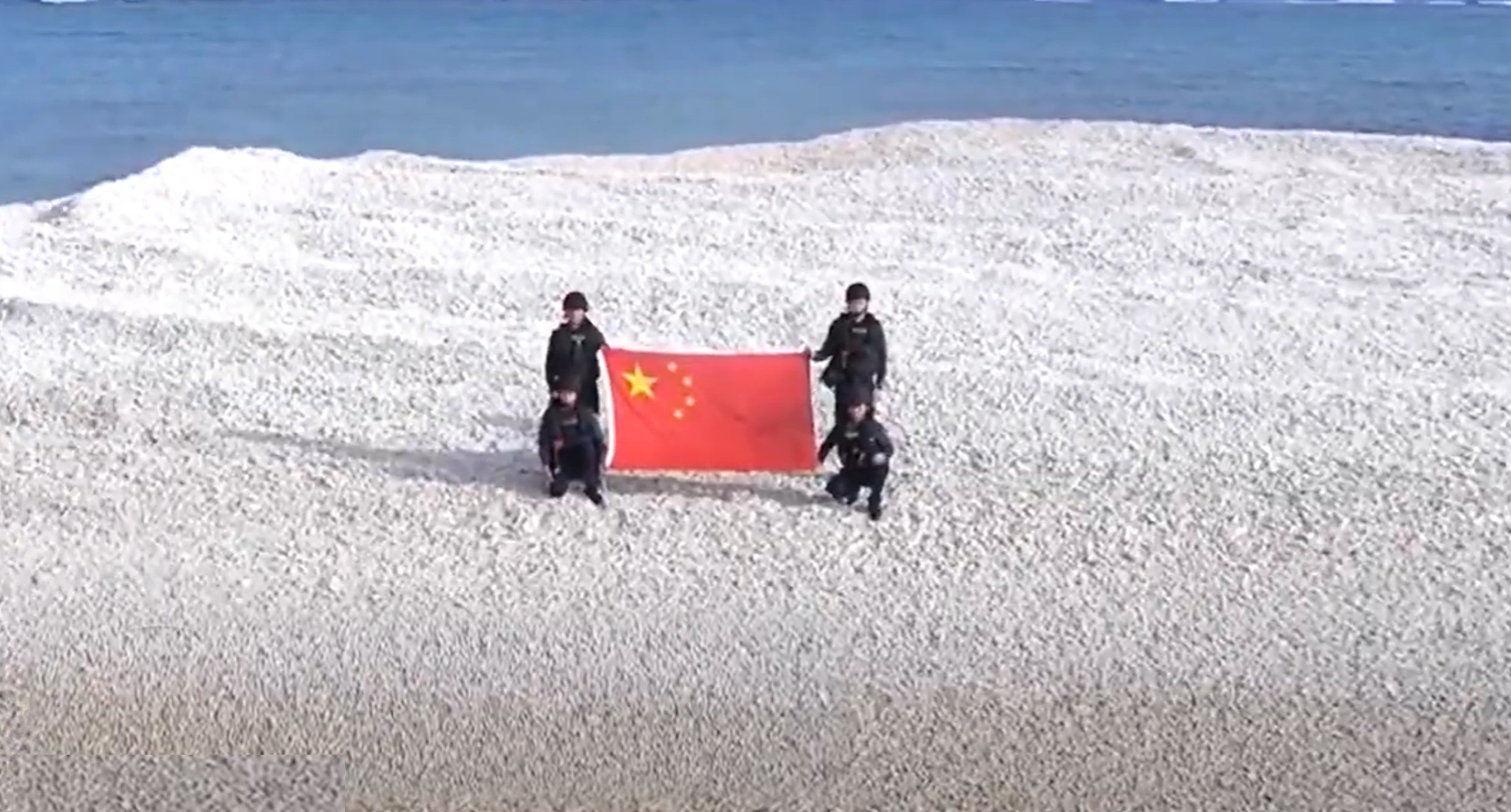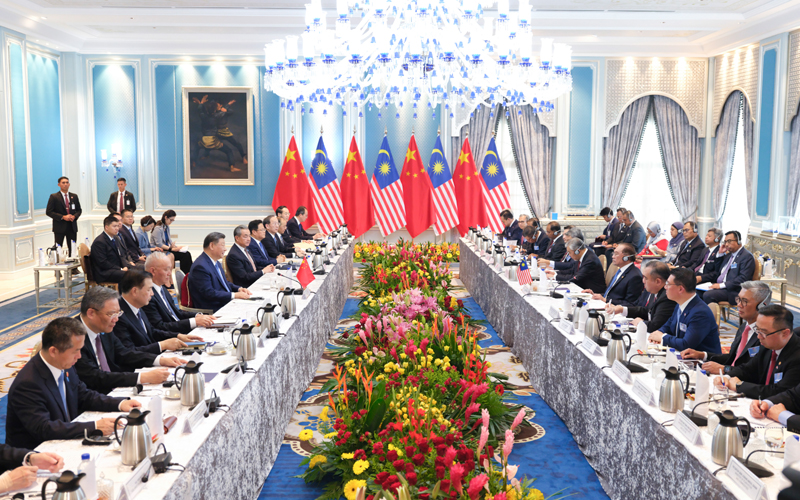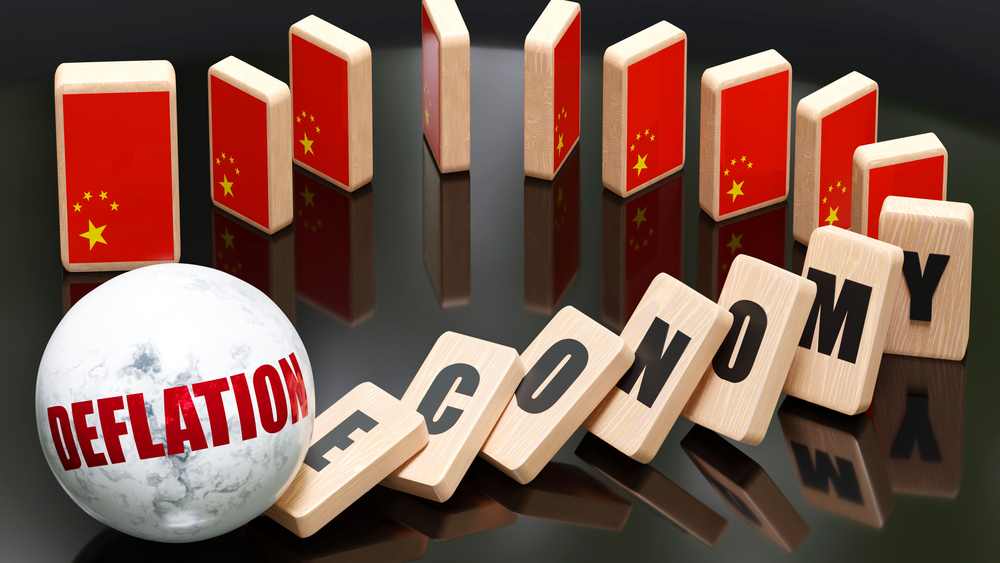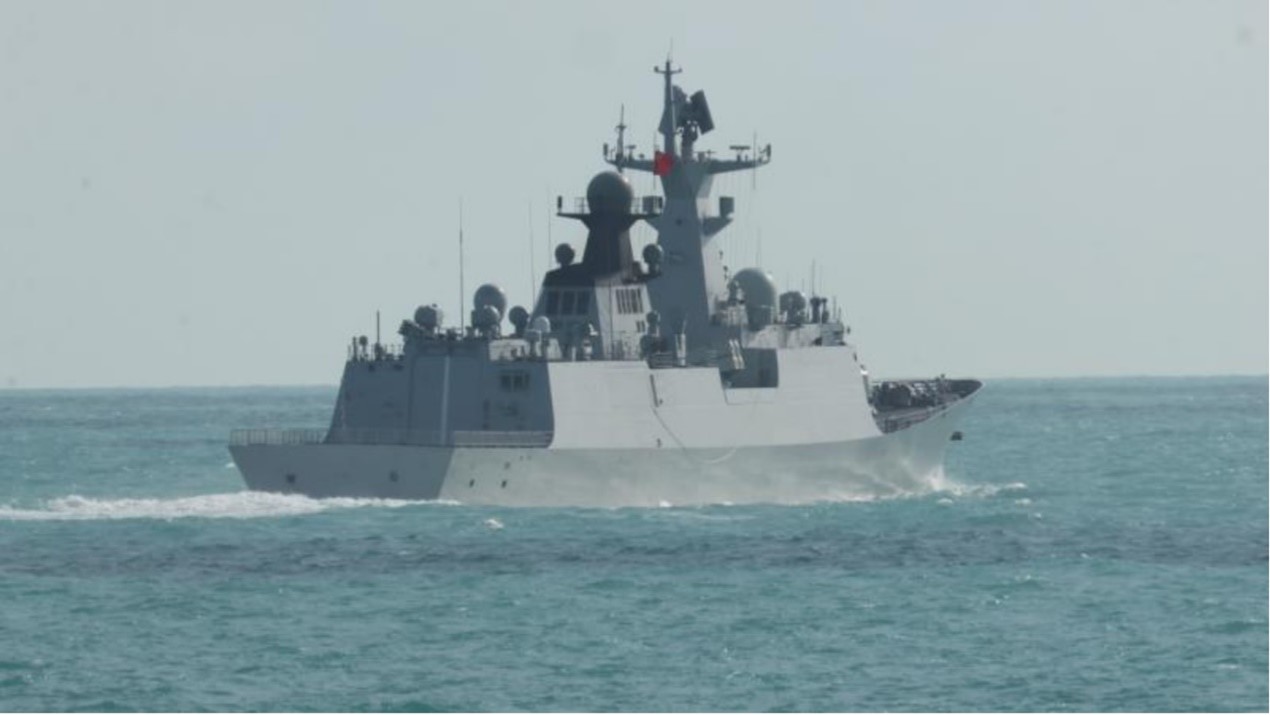The Security Agreement Between China and the Solomon Islands: Implication for Regional Security
After signing a security agreement with the Solomon Islands in March 2022, China attempted to replicate this achievement by signing another agreement with 10 Pacific Island states in May. Although China’s efforts failed, it showed Beijing’s ambition to challenge Australia’s predominant role in Oceania and U.S. leadership in the Pacific region. Picture source: Depositphotos.
The Security Agreement Between China and the Solomon Islands: Implication for Regional Security
By Wen-cheng Lin
After signing a security agreement with the Solomon Islands in March 2022, China attempted to replicate this achievement by signing another agreement with 10 Pacific Island states in May. Although China’s efforts failed, it showed Beijing’s ambition to challenge Australia’s predominant role in Oceania and U.S. leadership in the Pacific region.
China’s great maritime power aspirations
The Chinese Communist Party (CCP) promised during the 18th Party Congress in November 2012 to build China into a great maritime power. Such a goal is part of Xi Jinping’s so-called Chinese dream — the rejuvenation of the Chinese nation. To achieve this goal, China must be able to cross the first island chain and project power deep into the Pacific Ocean. However, China’s expansion into the Pacific will face a strong challenge from the U.S., which has been the dominant power in the region since the end of World War II.
In the early years of his leadership, Xi avoided direct confrontation with the U.S. in the Pacific Ocean, and instead aimed for peaceful co-existence. Xi told President Obama during their summit meeting in Beijing in November 2014 that “the Pacific Ocean is broad enough to accommodate the development of both China and the United States.” Such a proposal is understandable not acceptable to Washington. Xi chose not to compete with the U.S. in the Pacific when China was not strong enough. Instead, Xi decided to move westward. He launched the Silk Road Economic Belt and the 21st Century Maritime Silk Road initiative (Belt and Road Initiative, or BRI) in 2013 in order to break out of U.S. containment and accumulate power to challenge the U.S. in future.
The BRI
The overland Silk Road Economic Belt begins from China and runs through Central Asia, Russia, East Europe to reach Western Europe. The Maritime Silk Road connects China’s coastal areas with Western Europe and combines countries along the sea route from the South China Sea, the Malacca Strait, the Indian Ocean, and the Mediterranean. Beijing hopes that the BRI can help China become a dominant power in Eurasia.
It has been almost one decade since Xi introduced the BRI. In spite of strong criticism from the U.S. that China is laying debt traps for many developing countries, the BRI has achieved a great deal for China. It has increased China’s global influence, secured access to key strategic raw materials, and expanded foreign markets for Chinese products. The BRI has extended to cover every region in the world except North America. As of March 23, 2022, one 149 countries had signed cooperation documents with China to join BRI projects. Countries that participate in China’s BRI projects increase their economic and financial dependence on China. Those countries, in particular those in the developing world, will likely bolster China’s challenge to U.S. global leadership.
The Pacific Ocean as an arena for Sino-American competition
As former U.S. Secretary of State Hilary Clinton said in her “America’s Pacific Century” speech, “Asia-Pacific has become a key driver of global politics.” More and more people believe that whoever rules the Pacific Ocean commands the world. Therefore, the Pacific Ocean has become the most important arena in the Sino-American competition for global leadership.
As mentioned above, Xi avoided a showdown with the U.S. in the Pacific during his first term as Chinese leader. This does not mean he ignored the region. On the contrary, Beijing succeeded in using money diplomacy and investment to increase its network and influence in the Pacific. Its official diplomatic relations in Oceania have increased from 10 to 12 states. Meanwhile, China has dramatically increased its sea power and used the BRI to win support from the developing world. The People’s Liberation Army Navy (PLAN) now outnumbers the U.S. Navy. China is now confident it can return to the Pacific to challenge the U.S.
Oceania as a vulnerable spot for Washington
China has two disadvantages in challenging U.S. leadership in the Pacific. First, it does not have regional powers as partners. Australia, Canada, Japan, New Zealand, the Philippines, South Korea, Taiwan, and Vietnam are either U.S. allies or partners. Indonesia and Malaysia have decided to be neutral. Second, China does not have any military bases in the Pacific Ocean. Nevertheless, Oceania is a vulnerable spot for the U.S. in the Pacific because Washington did not pay enough attention to the region.
In addition to Australia and New Zealand, there are more than a dozen small island states in Oceania. Most of those island states are less-developed economies with serious internal problems. The financial difficulties of those states in turn creates golden opportunities for China’s money diplomacy to gain influence in the region. In fact, 10 island states plus New Zealand have signed cooperation documents with China to participate in the BRI.
Implications
By signing a security agreement with the Solomon Islands, China has gained a foothold in the Pacific. Although Beijing denies any intention to establish a military base in the Solomon Islands, such promises have been met with high skepticism. We should not forget that Xi promised President Obama in September 2015 at the White House that China “does not intend to pursue militarization” in the Spratly Islands — a pledge that Xi eventually broke.
The Solomon Islands is the fourth largest country in terms of the size of its territory in Oceania. A Chinese naval base in the Solomon Islands could serve as a station to provide logistic support for PLAN activities as well as intelligence gathering in the Pacific and as a stepping stone to reach Latin America. Beijing will assuredly continue to push other island states to sign similar agreements and to establish more military bases in the region.
China is challenging the rules-based liberal international order. Its expansion into Oceania will jeopardize the regional order as well. Countries with important interest in this region, including the U.S., Australia, New Zealand, Japan, France and Taiwan should work together to keep this region from China’s domination.
(Dr. Lin is Professor, Institute of China and Asia Pacific Studies, National Sun Yat-sen University)
Editor’s Note: The views expressed in this publication are those of the authors and do not necessarily flect the policy or the position of the Prospect Foundation.


